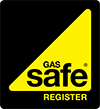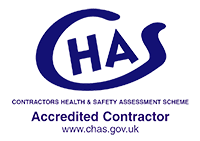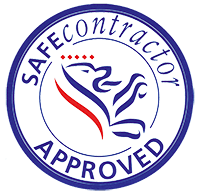We wouldn’t be doing a good job for Gas Safety Week if we didn’t include a blog about gas itself and why gas safety rules exist. Natural gas has many advantages as an energy source, however its greatest property as a fuel is also one of its biggest dangers – it is highly combustible.
From an energy point of view, this means that it can produce large amounts of heat from burning a small amount. This makes it very energy efficient. It also makes it highly dangerous.
The first sign that you have a gas leak is usually an eggy smell that is very distinctively gas. In fact, this is not the original scent of gas – natural gas is actually odourless – this smell is added for this specific reason; to enable you to detect a gas leak.
A gas leak has two main issues: firstly, because it is so combustible, there is a very real risk of explosion. Even a small spark from turning a light on can ignite a very tiny amount of gas. Secondly, there is a risk of asphyxiation. Inhaling high concentrations of gas can deprive the body of oxygen which can lead to brain damage or even death.
If you think you can smell gas you should ring The National Grid immediately on 0800 111 999. They will be able to send an emergency engineer as well as give you advice. Do not turn any lights on or use any electrical appliances, and open doors and windows. Ideally, you should leave the immediate area of the property while you wait for an engineer.
Another risk associated with natural gas is carbon monoxide poisoning, also known as CO poisoning. Carbon monoxide is a highly toxic gas that is produced when natural gas is not burned completely because it doesn’t have the right amount of oxygen. This can be caused by a gas appliance that is incorrectly installed, repaired, or maintained, or if flues become blocked.
It’s often known as the ‘silent killer’ as, unlike gas, it has no smell so it’s hard to detect. Often the first signs you will get (if you don’t have a CO monitor) are the symptoms of CO poisoning: headaches, dizziness, fatigue, breathlessness, nausea etc. Unfortunately, these are also common symptoms of flu, hangovers, or even Covid-19, so you may not recognise the real source of the problem.
The absolute best thing you can do to detect carbon monoxide is to have a CO monitor and keep it close to gas appliances, such as the boiler but also gas fires and cookers. The best thing you can do to prevent the presence of carbon monoxide is to maintain your gas appliances well and always use a Gas Safe engineer to work on them.
If anyone in the house does present with these symptoms, but finds that they reduce or even disappear when outside of the home, this is also an indication. However, do not rely on this as CO could kill you very quickly, in high enough concentrations, so you may not even get chance to leave the home.
Other signs include gas flames burning yellow, rather than blue, soot marks around gas appliances, pilot lights that often blow out, and increased condensation inside windows.
Gas shouldn’t worry you – it’s actually very safe if managed correctly - as long as you take the right precautions by having CO monitors and keeping their batteries up to date, and only using trusted Gas Safe registered engineers to install or work on your gas appliances. (This is actually a legal requirement, for this very reason). Annual servicing should also be undertaken to make sure everything is working properly and, potentially, detect any areas of concern.
If you have concerns about your boiler, or just haven’t had it serviced for a while, then if you do anything this Gas Safety Week, just book it in for a service. It’s really not worth the risk of leaving it.
See all the blogs for Gas Safety Week so far here.
Complete the form below and one of the Plumbcare.com team will get back to you as soon as possible.






Reliable prompt service. Courteous engineer and very well informed. All questions answered and no problems. Professional service.